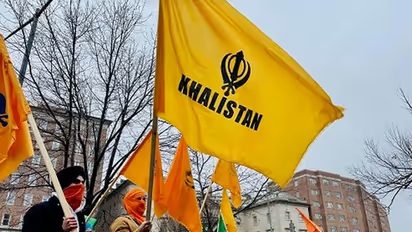'Inflaming anti-India sentiment': UK review cautions New Delhi over Kashmir violence, pro-Khalistan extremism

Synopsis
The review into the government's counter-terrorism early intervention Prevent strategy warned that rhetoric from Pakistan is impacting UK Muslim communities when it comes to "inflaming anti-India sentiment, particularly around the subject of Kashmir". The review warns against a false narrative being disseminated by a tiny number of pro-Khalistan groups operating in the UK.
The radicalization of UK Muslims over Kashmir and "potentially toxic" pro-Khalistan extremism have been identified as some of the areas of growing concern in a review of the UK government's anti-terrorism programme. The review also makes recommendations for improvements to combat Islamist extremism, which it identifies as the "primary threat" to the nation.
This week's assessment of the government's Prevent strategy for counterterrorism cautioned that Pakistani rhetoric is having an effect on UK Muslim communities by "inflaming anti-India sentiment, notably around the issue of Kashmir." Additionally, it issues a warning against the spread of a false narrative by a small number of pro-Khalistan organisations working in the UK.
The review carried out by Commissioner for Public Appointments William Shawcross also warns against a false narrative being disseminated by a tiny number of pro-Khalistan groups operating in the UK.
According to the review, there is some crossover between those who advocate for blasphemy restrictions and those who use inflammatory language on Kashmir.
"I've seen evidence of extremist organisations from the UK and a Pakistani preacher who has followers in the UK pushing for bloodshed in Kashmir. I have also seen proof that Kashmir-related flashpoints trigger a sharp increase in interest among UK Islamists," said Shawcross.
It noted that there is no reason to believe this issue will disappear as a grievance that Islamists will seek to exploit in years to come.
"This may be important to Prevent since there are cases of people who were first involved in the Kashmir conflict who were later found guilty of terrorism offences in the UK. This includes those who later joined al-Qaeda," the report said.
According to the research, there is extremism that is pro-Khalistan. It added: "The emergence of pro-Khalistan extremism among the Sikh communities of the UK should also be taken into account by Prevent. The few pro-Khalistan organisations functioning in the UK spread a false narrative that the government is working with its counterpart in India to persecute Sikhs."
"The narratives of such organisations laud the violence committed by the pro-Khalistan movement in India. Even while the threat is minimal right now, praising violence abroad while also supporting a state-led campaign of repression at home might be dangerous in the long run," the report added.
It comes after the review concluded that Islamist extremism poses the "primary terrorist danger" to the UK and "consistently accounts for the majority of terrorist attack schemes both carried out and disrupted by the intelligence services," according to the review.
(With PTI Inputs)
Check the Breaking News Today and Latest News from across India and around the world. Stay updated with the latest World News and global developments from politics to economy and current affairs. Get in-depth coverage of China News, Europe News, Pakistan News, and South Asia News, along with top headlines from the UK and US. Follow expert analysis, international trends, and breaking updates from around the globe. Download the Asianet News Official App from the Android Play Store and iPhone App Store for accurate and timely news updates anytime, anywhere.